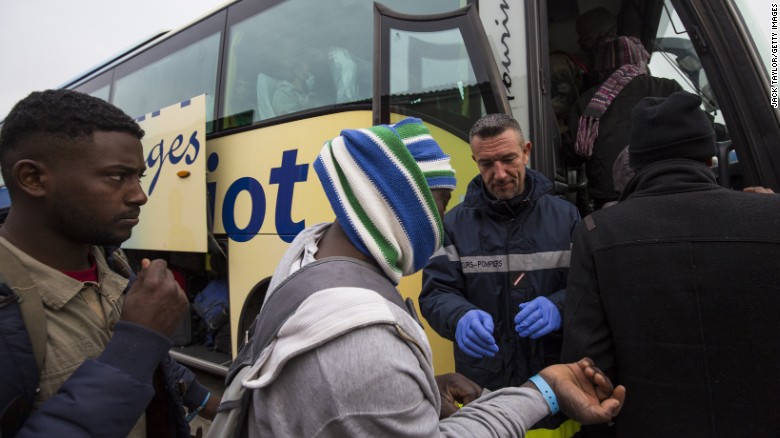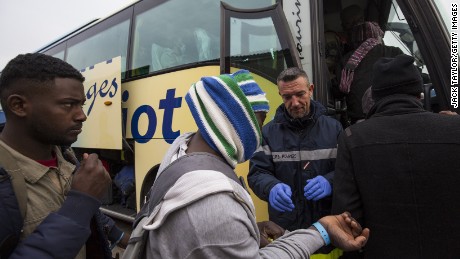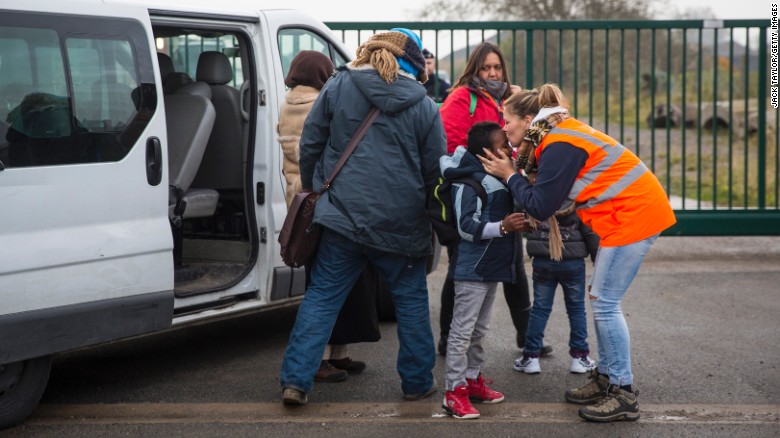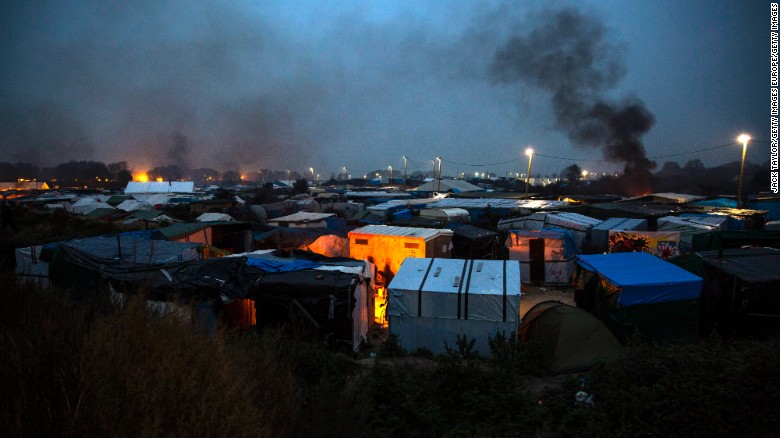(CNN) Residents in France's "Jungle" prepared Tuesday for their final day in the infamous migrant camp, as authorities poised to take down the shacks, tents and other make-do shelters that thousands have called home over the past two years. French authorities yesterday bussed more than 2,300 migrants out of the camp in the port town of Calais, sending them to regions around the country to begin a months-long process for resettlement.
So-called cleaners were scheduled to move in at 8 am local time, but Calais officials hours later announced a delay until the afternoon, when a security cordon will be put in place around the camp. A CNN team on the ground saw excavators, diggers and dump trucks pass the motorway that runs alongside the site in the late morning, but could not confirm they were bound for the Jungle.
France has for more than a year vowed to raze the 4 square-kilometer camp, but its requests to do so had been shot down several times in court.
Authorities dismantled part of the camp early this year, but it failed to stop more and more migrants from arriving, with high hopes of crossing the Eurotunnel from Calais to reach the UK, just over 30 miles away.
The Jungle has become a gritty symbol of Europe's migrant crisis and has been a thorn in the French government's side. But to a tight-knit community there, it is also a symbol of determination and resilience -- more than 70 business have sprung up in the Jungle, including restaurants, cafes, bars, hairdressers and barbers, and leaving is not as simple as packing up and moving on.
'I'm going to England'
The temporary shelters that will be destroyed in the next few weeks have housed thousands of people who have reached Calais after lengthy and often treacherous journeys to Europe from countries including Syria, Afghanistan, Somalia and Sudan.
The French government aims to get everyone out within a week or so, and to clear the site completely by the end of December.
But some appear determined to stay in the Jungle for now, at almost any cost. A handful of people were involved in skirmishes with riot police at the site Monday evening, throwing stones at officers who responded by firing tear gas at them. Scuffles seemed to be breaking out Tuesday morning among a group of migrants surrounded by police.
Earlier in the day, two Afghan residents of the camp told CNN they would not leave the camp, because to do so would mean turning their backs on a long-held dream to make it to Britain.
"I'm going to England," 15-year-old Afghan teenager Hussein said. "I don't like France. My family is in England."
His friend, who declined to give his name, said he would be going to UK and would refuse to leave the Jungle.
It remains unclear just how French authorities will deal with those who refuse point blank to move out; before the evacuation program began, Interior Ministry spokesman Pierre-Henry Brandet said migrants would not be forced to board buses and leave the town.
"This will be done on a voluntary basis and no coercive measures will be taken towards the migrants," he said.
is an attractive destination for those seeking asylum, as its economy is stronger than most of its European neighbors' and many migrants already have some command of English.
Many have risked their lives boarding lorries to traverse the tunnel -- dozens have died doing so -- while others simply walked across before France and Britain agreed to build a fence and boosted security to stop the practice.
'Many children will disappear,' NGO warns
Under an agreement with France, the UK has accepted 200 children from the camp since early October, British Labour MP Caroline Flint told CNN's Christiane Amanpour on Monday.
Home Secretary Amber Rudd said that 800 children at the camp claiming to have family ties in the UK had been interviewed in the camp by British authorities, but stressed no new arrivals would be considered.




No comments:
Post a Comment